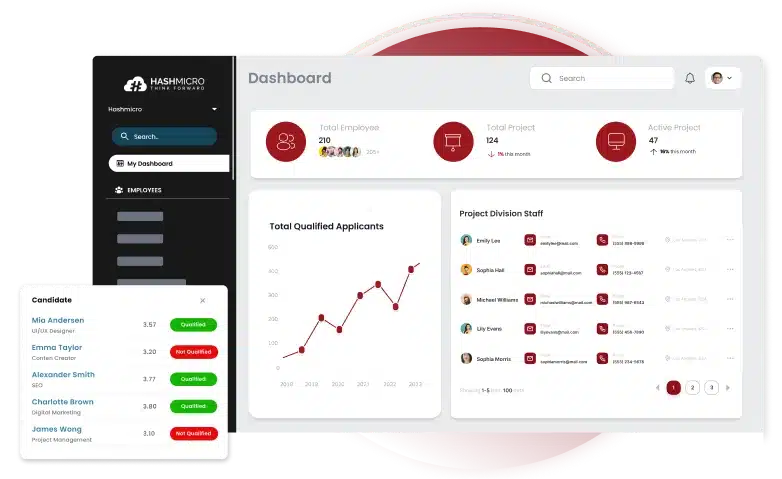Ever wondered why some businesses thrive with happy, motivated employees while others struggle to retain talent? It’s not just about the paycheck—it’s about how compensation is managed to make employees feel valued and appreciated.
If you think compensation is just about salaries, think again. Dive into this article to discover the secrets of effective compensation management, the different types of rewards, and how they can transform your business success. Trust us, you don’t want to miss this!
Key Takeaways
|
Table of Contents
What is Compensation?
Compensation is the total rewards employees get for their work, including salaries, benefits, and recognition. It motivates employees through financial rewards like pay and non-monetary perks like growth opportunities.
Compensation helps attract and retain top talent, making employees feel valued and motivated to perform well. Fair pay boosts morale, job satisfaction, and loyalty within the workplace.
What is Compensation Management?

Compensation management is the process of planning, organizing, and overseeing employee pay structures and benefits. It includes salaries, bonuses, benefits packages, and performance incentives to keep employees motivated and fairly rewarded.
Unlike payroll, which focuses on processing salaries and ensuring timely payments, compensation management looks at the bigger picture. It aligns employee rewards with business goals, evaluates market trends, and ensures pay equity across roles while promoting fairness and competitiveness.
Types of Compensation
Compensation comes in different forms, each designed to meet employee needs and motivate performance. Understanding these types helps businesses create attractive packages that boost job satisfaction and loyalty.
There are three main types of compensation that companies offer to their employees:
| Types | Description |
|---|---|
| Direct Compensation | Direct compensation refers to the actual money employees receive, like salaries, hourly wages, commissions, and bonuses. |
| Indirect Compensation | Includes non-cash benefits such as health insurance, retirement plans, housing allowances, and other perks. |
| Non-Monetary Compensation | Focuses on rewards that don’t involve money, like employee recognition, professional development, and flexible work options. |
Understanding these types of compensation allows businesses to design comprehensive packages that meet diverse employee needs. A balanced approach can improve employee motivation, retention, and overall job satisfaction.

How is Compensation Determined?
Determining compensation isn’t just about setting a number on a paycheck. It involves analyzing various factors to ensure fairness, competitiveness, and motivation. Let’s explore the key elements that influence how companies decide what to pay their employees:
1. Factors Affecting Compensation Decisions
Several factors influence compensation decisions, including job roles, industry standards, and company budget. The cost of living and employee performance also play significant roles in determining fair pay. Companies must balance these elements to ensure competitive and motivating compensation packages.
2. Market Benchmarking
Market benchmarking helps businesses compare their compensation rates with industry standards to stay competitive. It involves analyzing similar roles in other companies to identify pay trends and set attractive salary ranges. This process ensures that employees feel valued and companies can attract top talent.
3. Job Evaluation
Job evaluation assesses the relative worth of different positions within an organization. It focuses on responsibilities, required skills, and the impact of each role on business goals. This helps establish fair and consistent compensation structures across all levels of the company.
4. Performance-Based Compensation
Performance-based compensation rewards employees based on their achievements and contributions to company success. This approach includes bonuses, commissions, and merit-based raises to motivate high performance. It encourages employees to meet targets, fostering growth and productivity in the workplace.
Benefits of Effective Compensation Management

Compensation management goes beyond just paying employees; it shapes how they feel about their work and value. Effective strategies can inspire employees, foster loyalty, and significantly impact productivity across the organization.
Here are the key benefits of having an effective compensation management system in place:
- Employee Motivation and Retention: Effective compensation strategies boost employee motivation by recognizing and rewarding their hard work. Competitive pay and rewards create a positive work environment that fosters loyalty and dedication.
- Enhancing Productivity and Engagement: When employees feel fairly compensated, they become more engaged in their roles and deliver better results. Engaged employees are more likely to go the extra mile for the company.
- Promoting Fairness and Transparency: Transparent compensation practices promote trust and fairness within the organization, creating a healthy work culture. When employees know how decisions are made, they feel respected and secure.
By focusing on these key benefits, businesses can create a work environment that motivates, engages, and retains top talent. A well-managed compensation system leads to happier employees, improved performance, and sustainable business growth.
Challenges in Compensation Management
Compensation management isn’t without its hurdles. Businesses face various challenges that can impact fairness, employee satisfaction, and legal compliance. Understanding these challenges is key to building a strategy that supports both the organization and its workforce.
These challenges include:
- Pay Equity Issues: Ensuring fair compensation regardless of gender, race, or background is a major concern. Inequities can lead to dissatisfaction, legal risks, and harm to the company’s reputation, requiring regular audits and transparent policies to maintain fairness.
- Budget Constraints: Businesses often struggle to balance competitive compensation with limited financial resources. Effective planning helps allocate resources wisely, ensuring employee expectations are met without straining the company’s budget.
- Compliance with Labor Laws: Staying updated on ever-changing regulations ensures fair treatment of employees and avoids legal penalties. Regular audits, policy updates, and staff training are essential to maintaining legal compliance and protecting the organization.
By identifying and addressing these challenges, businesses can foster a fair, motivating, and legally sound compensation environment. This proactive approach not only supports employee satisfaction but also enhances the company’s long-term success.
The Role of HR in Compensation Management
HR plays a crucial role in compensation management, acting as the backbone of fair and effective pay structures. They conduct pay equity audits to identify and address wage gaps, promoting fairness and boosting employee satisfaction while minimizing legal risks.
Beyond compliance, HR regularly reviews compensation strategies to ensure competitiveness and fairness in the market. They rely heavily on a Human Resource Management (HRM) system to streamline these processes, making data-driven decisions easier and more accurate.
With an HRM system, HR professionals can manage compensation efficiently, reduce errors, and maintain transparency. Their strategic role, supported by advanced tools, ensures that organizations retain top talent, foster employee satisfaction, and stay legally compliant in an ever-evolving business environment.
Effortlessly Manage Compensation with HashMicro’s HRM Software

Managing compensation can be complex, but HashMicro’s HRM Software simplifies the process with powerful, easy-to-use tools. It helps HR professionals ensure fair pay, improve employee satisfaction, and stay compliant with labor laws without the hassle of manual work.
Here are some key features that make HashMicro’s HRM Software indispensable for businesses:
- Automated Payroll Processing: Automatically calculates salaries, deductions, and benefits, reducing errors and saving time.
- Comprehensive Compensation Planning: Allows businesses to create structured pay scales, bonus plans, and benefits tailored to company goals.
- Performance-Based Reward System: Links employee performance data with compensation decisions, ensuring top performers are recognized and rewarded.
- Real-Time Analytics and Reporting: Provides data-driven insights into payroll costs, salary trends, and employee compensation metrics for better decision-making.
- Compliance Management Tools: Keeps track of regulatory changes and ensures compensation practices meet legal requirements, reducing compliance risks.
With one of the best HRM Software such as HashMicro, your business can manage compensation efficiently, maintain transparency, and motivate employees through fair, data-backed strategies. It’s not just software; it’s the key to building a motivated, satisfied, and high-performing workforce.
Conclusion
Compensation management is the strategic process of planning and overseeing employee pay, benefits, and rewards. It ensures fair, competitive, and motivating compensation to attract, retain, and engage top talent. This system is key for fostering job satisfaction, performance, and business growth.
Implementing effective compensation strategies can be challenging, but HashMicro’s HRM Software makes it easier with automated, data-driven tools. Simplify your compensation processes, enhance fairness, and boost employee satisfaction. Ready to transform your business? Try the free demo today to see how it works!

FAQ Around Compensation Management
-
How important is performance and compensation management in a firm?
Performance and compensation management are vital for motivating employees and aligning their goals with business success. They help retain top talent, boost productivity, and ensure fair rewards based on performance.
-
What are the 3 P’s of compensation?
The 3 P’s of compensation are Pay for Position, Pay for Person, and Pay for Performance. They focus on rewarding based on job roles, individual skills, and performance outcomes to ensure fairness.
-
What are the 3 C’s of team compensation?
The 3 C’s of team compensation are Clarity, Consistency, and Communication. They ensure transparent, fair, and well-communicated compensation strategies that promote trust and team motivation.




































